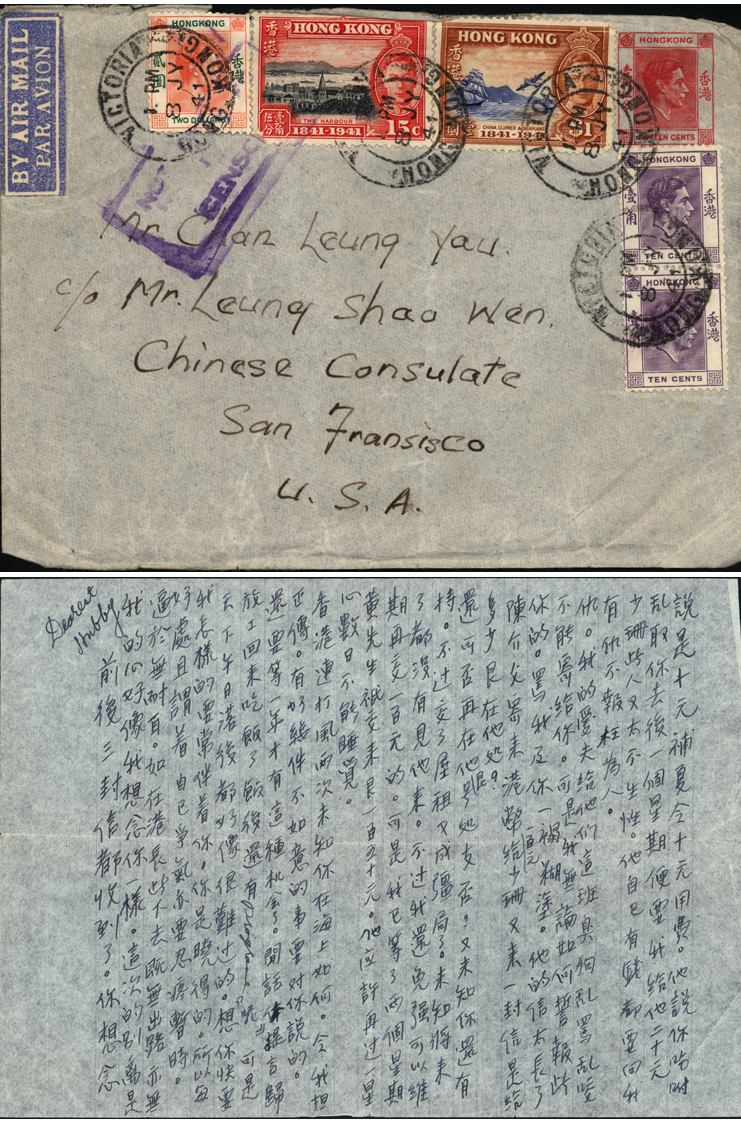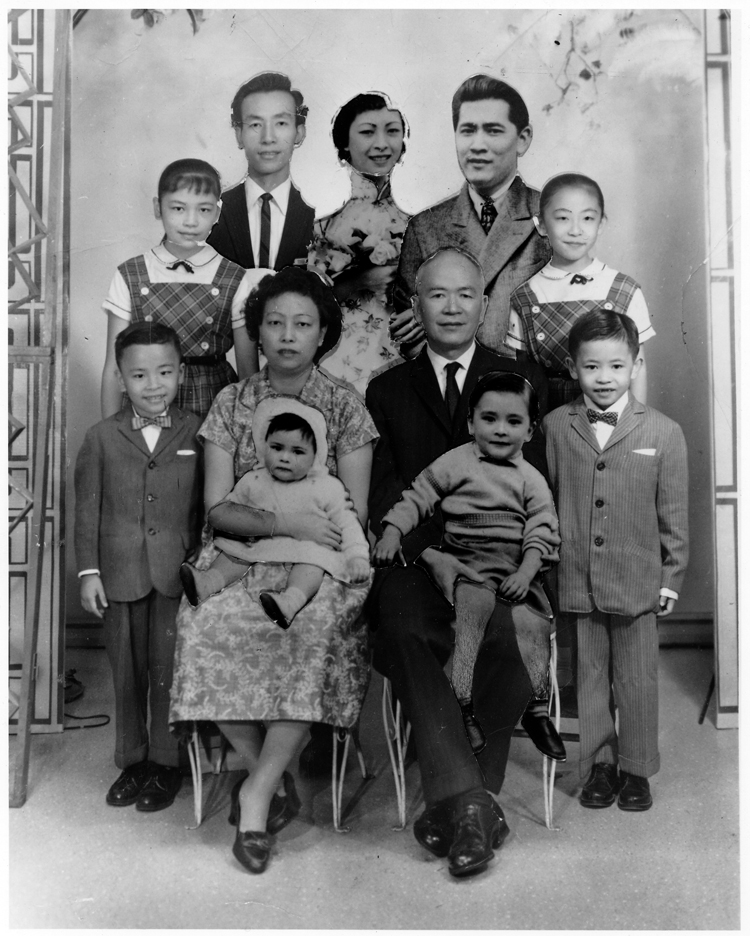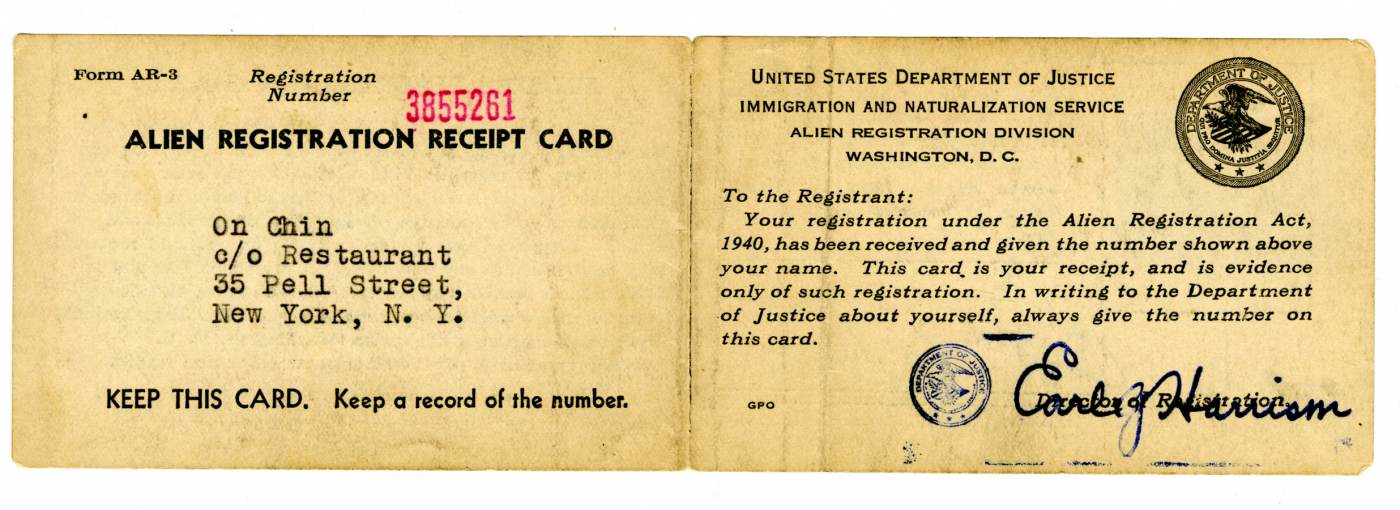Leong-Yau Chan, also known as Yushan Chan, was born in China in the 1900s. He received his bachelor’s degree at Peking University in 1921 then came to the U.S. and completed a master’s program at NYU in the 1930. He was appointed as a professor at National Zhongshan University in 1931 and served in several important positions in the Kuomingtang’s military forces. He returned to the U.S. in the early 1940s and lectured at NYU from 1941-43, during which time he was also the secretary of “The Chinese Military Mission to U.S.” Chan would later run the Chinese American World Publishing Corp in New York’s Chinatown.
Chan was married three times, bearing one child with his first wife and one child with his second wife. He was married to his third wife, the aunt of the collection’s donor, for forty-two years. In the collection are a series of letters from his second wife, King-Fong. In her letters, she speaks sorrowfully of their separation across Hong Kong and Washington D.C. and tells him about the things their baby daughter has been doing, such as starting to eat rice. Fang also wrote a short autobiography, describing how she and Chan fell for each other, fled to Hong Kong to marry when the Japanese conquered Guangzhou, and began the process of bringing Fang and their children to the U.S. until the bombing of the Kai Tak Airport of hong kong dashed her dreams of reuniting with her husband.


